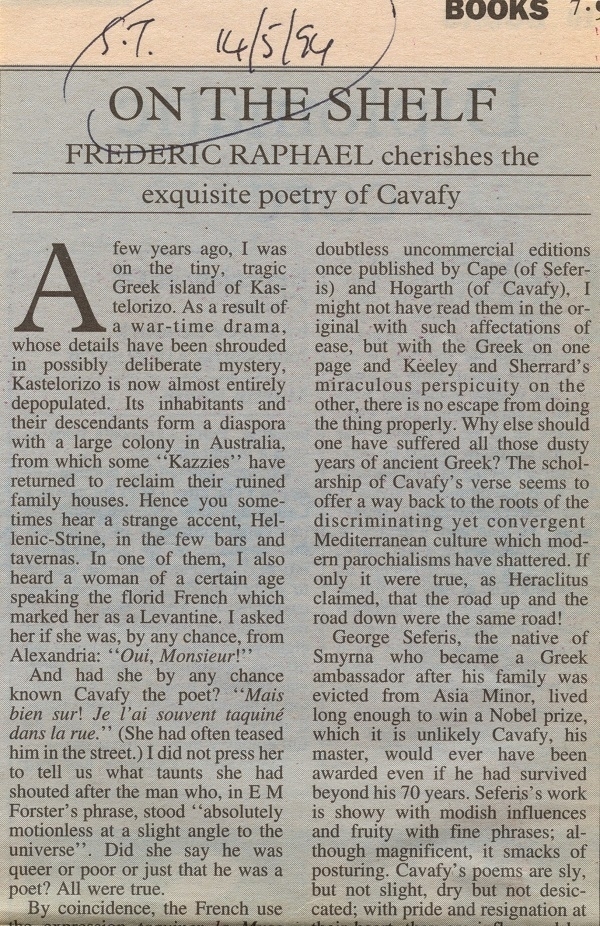Clippings

From one of the charity shops in Monmouth last week I bought a copy of C.P. Cavafy’s Collected Poems, specifically a 1984 paperback volume published under The Hogarth Press imprint. It cost me £2. I didn’t open the book until I’d brought it home, so only then did I see the newspaper clippings that had been enclosed within by a prior owner of the book. One of them (part of which is shown above) is a piece by Frederic Raphael about Cavafy & his poetry which has “S.T. 14/5/94” written on it. I imagined S.T. might stand for the Sunday Times, but 14/5/94 was a Saturday. The remainder of the clipping (which, unfolded, is a little taller than my scanner’s flatbed) is here, should anyone be interested.
The other clipping is a more substantial one: three full pages from a November 2008 issue of the NYRB, stapled together in one corner and folded three times. It preserves an article about Cavafy entitled “‘As Good as Great Poetry Gets’” by Daniel Mendelsohn, together with a translation by Mendelsohn of Cavafy’s poem ‘Myres: Alexandria in 340 AD’. This was in advance of Mendelsohn’s edition (Knopf, 2009) of the poet’s collected work.
There was further evidence of prior ownership with an inscription inside the cover bearing the original purchaser’s (unusual) name, dated October 1984. Also, a wooden toothpick that had served as a bookmark. Searching on-line for the inscribed name, I found it matched that of a newspaper journalist who had worked internationally in the ’90s and ’00s. Could he be the author of the inscription? And, balancing one conjecture unsteadily on top of another, might he have been the one to fold up and enclose the clippings?
I had previously – in the early ’90s – owned a similar second-hand volume of Cavafy’s poetry. In those days I felt somewhat ambivalent about the superficially un-lyrical plainness of his verse, and a little uncomfortable (having, regrettably, absorbed some of the ambient homophobia of the times) with his writing about same-sex attraction. On becoming re-acquainted with Cavafy’s poetry, I felt no such misgivings and found rather more to enjoy and appreciate in it than before.